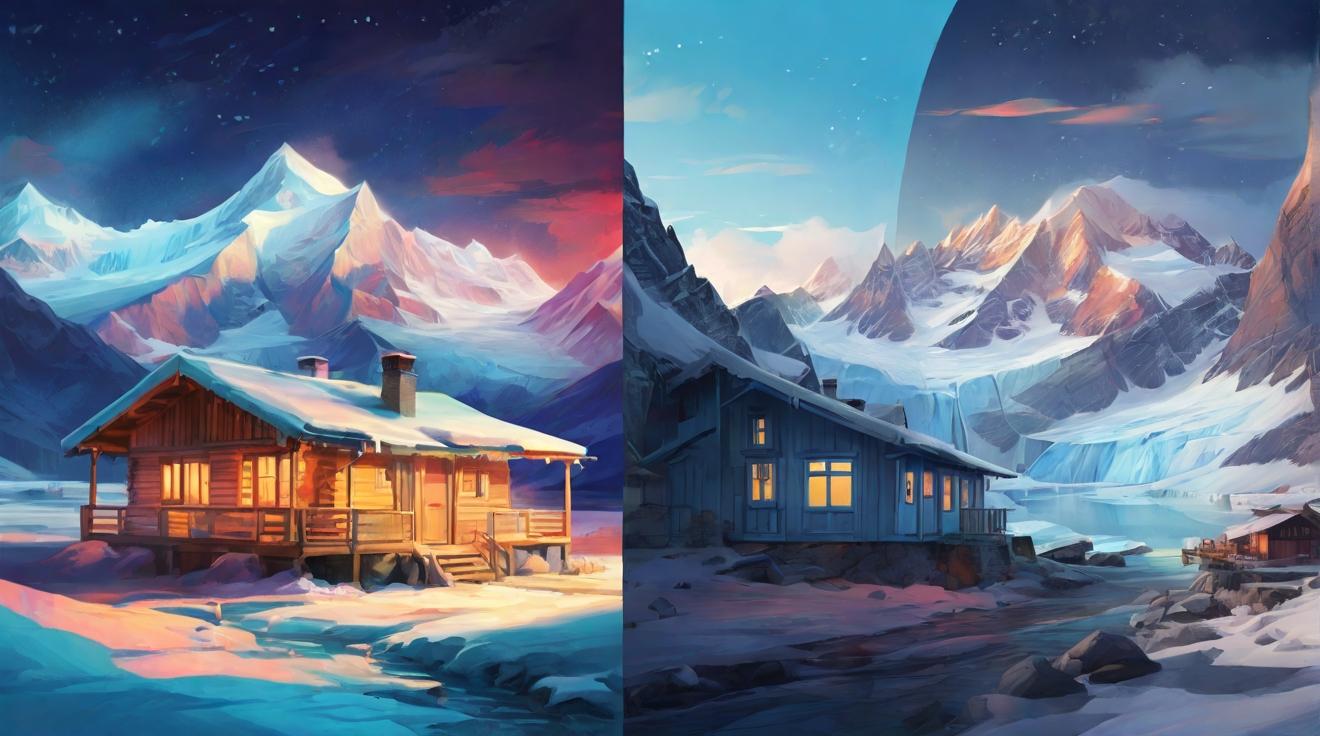Airbnb vs. Glacial Retreats: A SWOT Analysis of Unique Travel Experiences in Cold Regions
In the quest for unique travel experiences, seasoned adventurers are increasingly drawn to the cold, untouched corners of the world. Two leading options have emerged, each offering a distinct approach to exploring icy landscapes: Airbnb's remote listings and specialized glacial retreats. This comprehensive SWOT analysis dives deep into the strengths, weaknesses, opportunities, and threats of each, providing a detailed comparison for those planning their next chilly expedition.
Strengths
Airbnb’s diverse offerings in cold regions stand out as its biggest strength. From cozy cabins nestled in snow-laden forests to modern homes offering panoramic views of the northern lights, Airbnb caters to a wide range of preferences and budgets. This flexibility, combined with the platform's user-friendly interface and extensive customer reviews, makes it a go-to choice for many travelers seeking customizable winter experiences.
On the other hand, glacial retreats offer something Airbnb cannot: specialized, once-in-a-lifetime experiences entirely focused on glacial landscapes. These retreats provide expert-led tours, educational programs about climate change, and exclusive access to some of the world’s most remote glaciers. For those passionate about environmental science or seeking an immersive nature experience, glacial retreats are unmatched.
Weaknesses
Despite its broad offerings, Airbnb suffers from a lack of consistency in quality and experience. The peer-to-peer nature of the platform means that experiences can vary widely depending on the host, leading to potential disappointments in situations where expectations are not met.
Glacial retreats, while exceptional in their specialized focus, come with a high price tag and limited availability. These experiences are often season-dependent and can be affected by adverse weather conditions, making them less accessible to the average traveler.
Opportunities
The increasing interest in sustainable tourism presents a significant opportunity for both Airbnb and glacial retreats. Airbnb hosts in cold regions can adopt eco-friendly practices, offering a competitive edge by catering to eco-conscious travelers. Similarly, glacial retreats can leverage their educational aspect, promoting awareness about glacial melt and climate change, thus attracting a demographic passionate about conservation and environmental activism.
Threats
Climate change poses a major threat to both business models. For Airbnb, the unpredictability of winter seasons can affect the availability and appeal of cold-weather listings. Glacial retreats face an even more existential threat as their main attraction, the glaciers, are rapidly receding, potentially limiting the long-term viability of these unique travel experiences.
Moreover, the global pandemic has introduced uncertainties in travel, with restrictions and safety concerns affecting people’s willingness to embark on remote, cold-weather adventures. Both Airbnb and glacial retreats must navigate these challenges, adapting to changing travel norms and expectations.
Conclusion
When comparing Airbnb’s flexible accommodation options in cold regions with the specialized experiences offered by glacial retreats, it's clear that each caters to a distinct type of traveler. While Airbnb appeals to those seeking a comfortable and customizable winter getaway, glacial retreats attract adventurers and environmental enthusiasts looking for an immersive, educational experience. As the travel industry continues to evolve, particularly with growing concerns over climate change and sustainable tourism, both models will need to adapt to remain relevant and appealing to the modern traveler.













